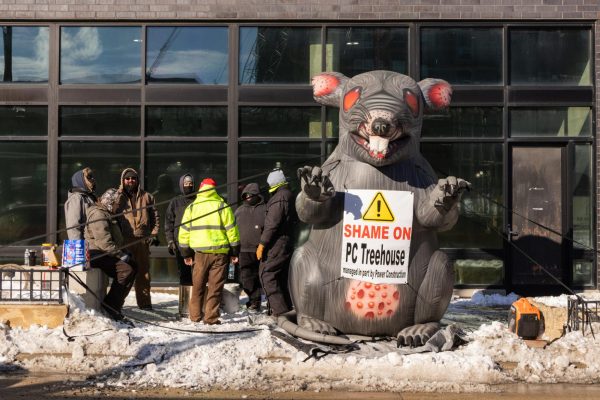UI examines data security

Online Poster
Apr 12, 2005
Last updated on May 11, 2016 at 08:26 p.m.
University officials are working to prevent hackers from obtaining the students’ information from its databases in light of recent security breaches at universities around the country.
Recently, databases at the University of California at Berkeley, Northwestern University and California State University at Chico, among others, have been compromised, sending information on tens of thousands of students into the hands of unknown hackers and thieves.
These breaches have brought to light concerns about the safety of the information that universities hold on their current and former students and even students who applied to the university and never were accepted.
Mike Corn, director of University’s Security Services and Information Privacy, said the University, while well protected, is still vulnerable to these sorts of attacks.
Get The Daily Illini in your inbox!
“We live in a world where any computer, no matter how secure, is vulnerable,” Corn said. “The bar is being raised on what you have to do to protect a computer from (being hacked).”
At Berkeley, a laptop containing information on more than 90,000 students was stolen, but the other universities had their databases hacked, Corn said. But he said security breaches are not limited to universities. Corn said companies such as Choice Point and Lexis Nexis, and even the Department of Defense, have been the victims of breaches in their databases.
Corn said the University prevents tens of thousands of attacks.
“I feel bad for schools like Berkeley because you only see it when they fail. For every attack you hear about, there’s probably 100,000 which were prevented,” Corn said.
But some University students, and students of schools that have been affected, said they are not worried. Mangesh Kulkarni, sophomore in engineering at Berkeley, works in a residential computer center on his campus.
“I’m not really worried because it seems like something like (the breach at Berkeley) is someone being stupid or someone directly targeting that laptop,” Kulkarni said. “I feel like, ‘why would they go after me?'”
Santhosh Vairavan, sophomore in engineering, felt the same way.
“If something like what happened at Berkeley happened here I would be a bit worried, but I know how to protect myself,” Vairavan said.
Corn said that while the University could get hit by one of these attacks, his team keeps the computer systems pretty secure. The core system is maintained in data centers in offices that do nothing but house those data centers, Corn said. He also said hackers are often looking for social security numbers, and many schools are trying to get their systems changed so that students are not known by anything but their university ID numbers. That system has been in place here for more than five years, Corn said.
When someone hacks into a system, Corn said it is difficult to track them down because they leave trails that jump from computer to computer and sometimes will end up in another network that belongs to another university or private company. He said it becomes very hard to travel through those networks to try and find the hacker.
Corn said personal computer security and University database security are two sides of the same coin. The University uses firewalls and virus protection software – just like what students are encouraged to use, but on a bigger scale. He said students could help prevent breaches like this by making sure their personal computers are safe.
“If you bring a computer to school, which has a vulnerability on it, and you plug it in, you’ve introduced that vulnerability to the school network,” Corn said.
Regardless of what schools do, Corn reiterated that there is always a chance that a security breach could happen.
“There’s no way to say that you’re done (protecting the system),” Corn said. “Technology changes, network changes, computers change, but I feel that we’re doing a good job protecting the campus.”





